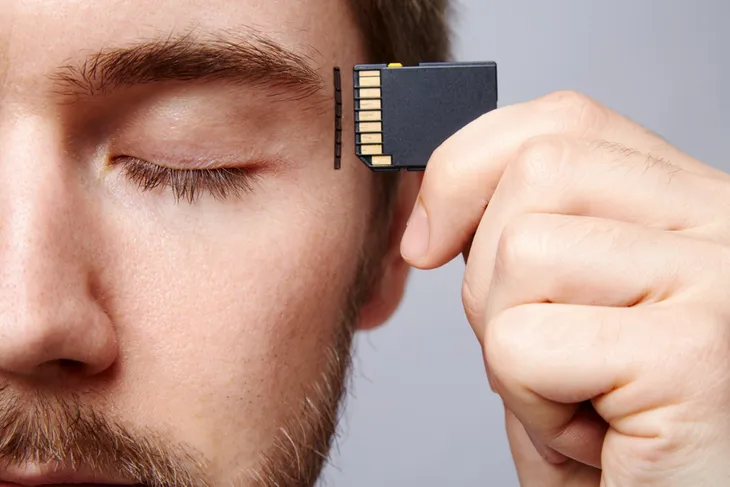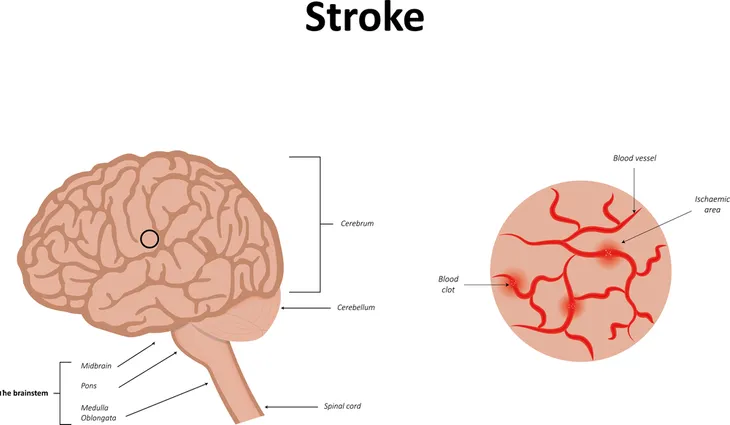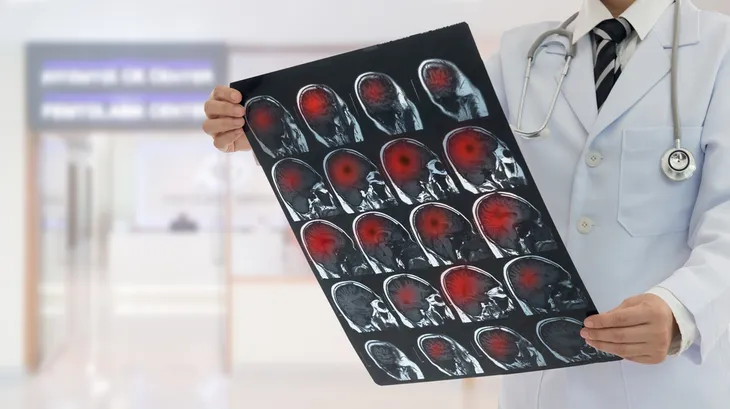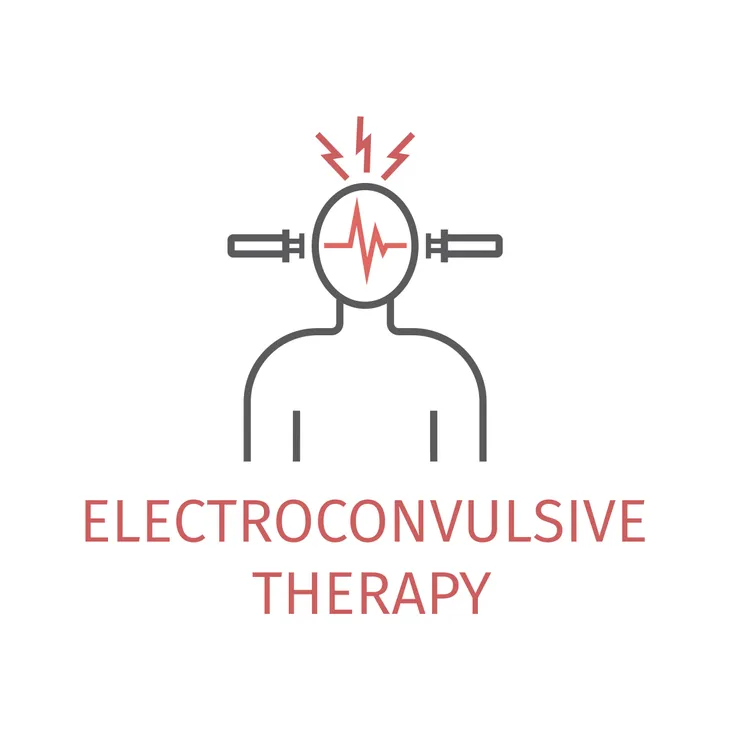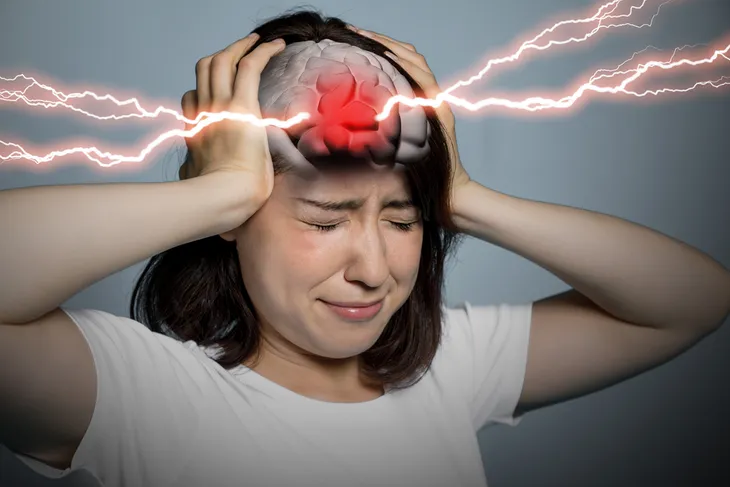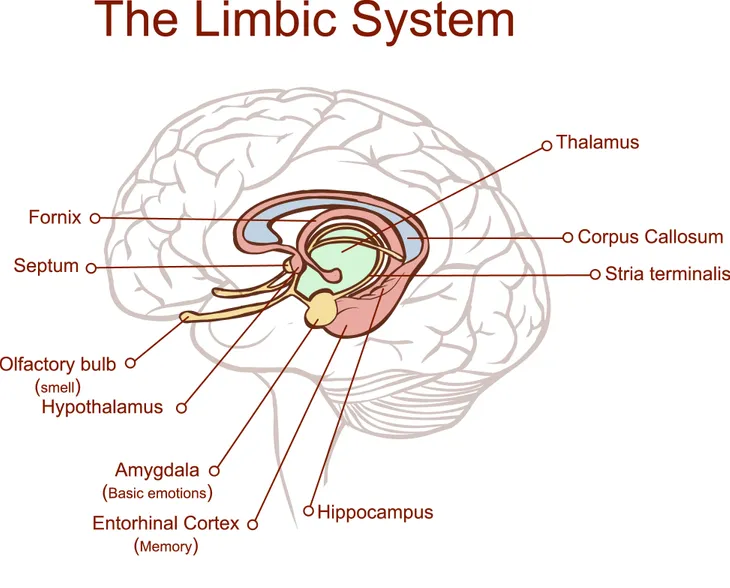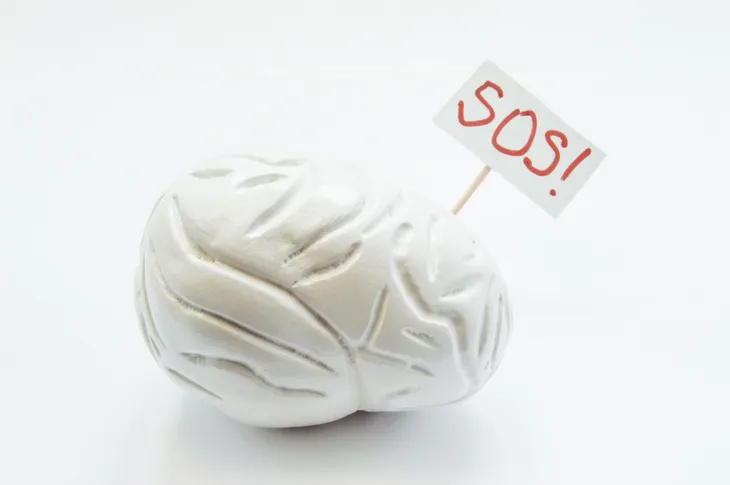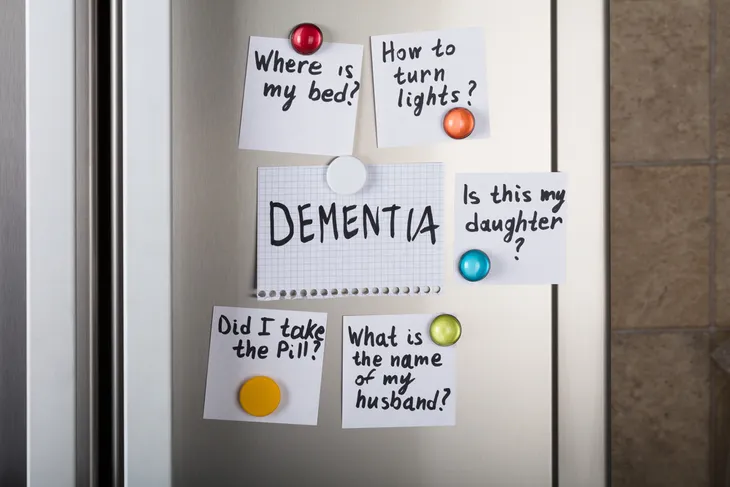Amnesia is not something we hear about happening often, but there are many reasons it can happen. It’s often depicted in television and film as a person waking up from a tragic accident and not even knowing who they are. While that makes for some great entertainment and drama, it doesn’t actually happen like that. According to the Mayo Clinic, amnesia doesn’t often cause a person to forget who they are, but rather, it’s the “loss of memories, such as facts, information, and experiences.” People who suffer from amnesia typically remember who they are, but they will have difficulty retaining new information or forming new memories.
Sometimes referred to as amnestic syndrome, amnesia occurs when there has been damage to the brain, particularly an area of the brain responsible for memory processing. The Mayo Clinic also notes that while there are incidents of temporary memory loss, for the most part, amnesia is permanent. To learn more about this condition, let’s take a look at some of the symptoms and causes of amnesia…
Symptoms
There are several different types of amnesia, which can all vary a little bit in their symptoms. Here’s a look at some of the most common…
Difficulty Learning New Information
Most of us associate amnesia with memory loss and while that is one of the main features of amnesia (we’ll get to that next), another big one is that people with this condition will not be able to or have great difficulty retaining new information. When this happens it’s referred to as anterograde amnesia. Healthline points out that this form of amnesia can be temporary. “For example, you can experience it during a blackout caused by too much alcohol. It can also be permanent,” says the source. This form of amnesia can occur if there is damage to the hippocampus in the brain which plays an important role in forming memories.
Difficulty Remembering Past Events
Obviously, the main symptom of amnesia is not being able to remember things, but this is the second main feature of amnesia. In most cases, this difficulty remembering will affect the short-term memory and long-term memories will still be intact. This is referred to as retrograde amnesia. Diseases such as dementia are responsible for causing retrograde amnesia.
“If you have amnesia, you will have difficulty recalling facts, events, places, or specific details” writes Healthline. For example, a person suffering from amnesia wouldn’t likely be able to remember what they had for breakfast or who the current president is, but they will remember who they are and details from their childhood. “You will still retain your motor skills, such as your ability to walk, as well as fluency in any languages you speak,” writes the source.
The Mayo Clinic goes into further detail talking about isolated memory loss and how it doesn’t affect “a person’s intelligence, general knowledge, awareness, attention span, judgement, personality or identity.” They can usually understand written words, write words on paper, or even learn skills. They might even know they have a memory disorder.
Additional Symptoms
There are several different types of amnesia, which can all vary a little bit in their symptoms. Retrograde amnesia causes people to lose memories, and anterograde amnesia makes it hard for people to form new memories. There’s also infantile amnesia, a very strange phenomenon where people can’t remember the first 3 to 5-years of their life, says Healthline. Additionally, there are more temporary types of amnesia, such as traumatic amnesia, fugue, or dissociative amnesia, where memory loss is temporary and returns after a period of time.
According to the Mayo Clinic, amnesia can sometimes also cause people to create false memories (confabulation), which are basically completely false and made-up memories. In addition to that, they could also have some confusion and disorientation.
Causes
Physical Trauma
There are several types of head trauma that can lead to amnesia and memory loss. The first is perhaps the best known: sudden trauma to the head. This kind of head trauma is often associated with unique and physically devastating events, such as a severe sports injury, work-related accident, or motor vehicle crash.
This kind of sudden and severe head trauma can cause significant damage to the brain and, in some cases, may lead to memory loss. Depending on the age and health of the patient, the amnesia may subside, allowing memories to return.
Sustained Brain Damage
Although amnesia is often caused by sudden trauma to the head — such as through a sports injury or traffic accident — memory loss can also be the result of sustained or consistent damage to the brain. This typically occurs in situations where the patient is regularly exposed to moderate head trauma that, in each scenario, does not result in amnesia but does lead to significant memory loss over a lengthy period of time.
This kind of amnesia is often associated with athletes playing particularly physical, even brutal, sports, such as boxing, mixed martial arts, football, hockey, or lacrosse. With every punch, kick or hit to the head, these athletes sustain slight though significant brain damage that can eventually result in memory loss and dementia.
Stroke
During a stroke, blood flow to the brain is cut off. Understandably, this results in serious damage to the brain, with the total amount of that damage dependent on how long the stroke lasts and how much time passes before the patient receives appropriate medical attention.
If the stroke is severe enough and the brain receives significant damage, it could result in amnesia and memory loss. In many cases this will subside, with memories slowly returning to the patient. However, this depends largely on the age of the patient and their body’s ability to recover, both physically and mentally.
Alcohol Abuse
Many of life’s biggest moments — from birthdays to weddings to retirement parties — are accompanied by alcohol, and sometimes lots of it. But sustained and excessive consumption of alcohol can lead to a range of significant health problems, from jaundice and liver malfunction to digestive and even reproductive issues.
Addiction can come in many shapes and sizes, and sadly alcohol is one of the main vices for people. Alcohol abuse can have a seriously negative impact on the brain. In the short term, it can cause people to blackout and not remember the night before. This is a temporary form of anterograde amnesia, says Healthline.
When it comes to alcohol abuse over a long period of time, it can cause Wernicke-Korsakoff syndrome. The extent of this memory loss depends on several key factors, including the age of the patient and the length of the alcohol abuse. In other words, older patients who have been drinking excessively their entire lives may experience greater memory loss than younger patients with less exposure to alcohol abuse. “If you develop this condition, you will have difficulty forming new memories, but may not be aware of it,” explains Healthline.
Psychogenic Amnesia
Psychogenic amnesia is quite possibly the most mysterious and least understood form of memory loss. It’s the result of a person consciously or subconsciously blocking out a part of their memory, often as a result of a highly traumatic event, like some kind of serious emotional or psychological stress. “Within this condition, your mind rejects thoughts, feelings, or information that you’re too overwhelmed to handle,” writes Healthline.
Because psychogenic amnesia often has nothing to do with physical trauma, it requires a much different approach in order to reverse memory loss. Rather than focusing on physically healing the brain, patients with psychogenic amnesia typically undergo psychiatric treatment to restore their memories. This process can be quite difficult for the patient. It may take years to recover and different types of medication to comfortably restore memory and general mental well-being.
Brain Tumor
Amnesia is often associated with physical changes in the brain, such as damage incurred through serious head trauma or over time, as the result of excessive alcohol and drug use. But it can also be related to the emergence of new physical entities within the brain itself, such as tumors.
Brain tumors can result in memory loss because they exert pressure on certain parts of the brain. Patients with brain tumors display many of the symptoms associated with degenerative conditions like Parkinson’s and Alzheimer’s. In an ideal situation, the tumor is removed, allowing the brain to recover and reverse memory loss. However, because brain surgery is incredibly complicated (and often dangerous), surgery may not be possible, particularly in cases involving older patients.
Brain Infection
There are a number of physical ailments that can lead to infection of the brain and significant memory loss. This includes Lyme’s disease, which is spread by ticks, and sexually transmitted diseases, such as syphilis, HIV, and AIDS.
Recovery depends largely on the type of condition and the ability of physicians to diagnose and treat the issue before too much damage is done. Because many of the health issues that result in brain infection are difficult to treat (for example, every case of Lyme disease tends to be different and there’s still no cure for AIDS), it may require experimentation with a range of treatments to effectively target the amnesia and reverse memory loss.
Medical Treatments
A number of serious health conditions require intensive medical procedures that can, unfortunately, result in amnesia. The most obvious of these procedures is brain surgery, which may be required when a tumor has been discovered. Any physical manipulation of the brain tissue in this way can result in the loss of memory, and it may be difficult to predict or treat this issue should it arise.
Cancer chemotherapy that directly targets the brain with radiation can also lead to memory loss, although the problem is usually temporary. There is also electroconvulsive therapy (or “brain shock” therapy), which is sometimes used to treat recalcitrant depression. Healthline explains that electroconvulsive therapy can cause retrograde amnesia causing a person to lose their short-term memory. “You could also experience anterograde amnesia, usually resolving within 2 weeks of the treatment,” says the source.
Mental Illness
Mental illness affects many Americans, but few must deal with conditions so serious that they can lead to amnesia and significant memory loss. But this is reality for people diagnosed with serious mental health issues like schizophrenia and bipolar disorder, with memory loss significantly worse for those who remain untreated for an extended period of time.
It’s also worth noting that memory loss can be the result of certain medications targeting mental health issues. Even relatively minor mental health conditions, such as insomnia and anxiety, can require the use of medications with side effects that can include temporary memory loss.
Damage to the Hippocampus
The hippocampus is a part of the brain that is responsible for memory. “Its activities include forming memories, organizing memories, and retrieving them when needed. Its cells are some of your brain’s most energy-hungry and fragile,” writes Healthline. The function of the hippocampus is sensitive and can be disrupted by things, such as anoxia, or other threats, like toxins or brain damage.
Not surprisingly, when it is damaged a person will have difficulty forming new memories. “If your hippocampus is damaged in both halves of your brain, you can develop complete anterograde amnesia,” says the source.
Lack of Oxygen
Our body needs oxygen not only to function but also to survive. In order for our brain to function properly, it needs to have a steady supply of oxygen, and when it doesn’t have that, it can have some serious side effects. Healthline explains that anoxia (lack of oxygen) is one of the causes of amnesia. It occurs when there’s a depletion of oxygen to the brain, which leads to memory loss. “If the anoxia isn’t severe enough to cause brain damage, the memory loss can be temporary,” according to the source.
What would cause a person to not get enough oxygen? The Mayo Clinic writes that many health conditions can cause this to happen which inadvertently leads to amnesia or memory loss. For example, a heart attack, respiratory distress, or carbon monoxide poisoning can cause an inadequate amount of oxygen in the brain.
Dementia
Most of us associate dementia with seniors or old age, and most of us associate it with the inability to remember things or retain new information. Now that we think about it, it sounds a lot like amnesia! Healthline lists it as one of the potential causes of amnesia. The reason we have trouble remembering things from our past as we age is because the location of a memory in our brain is dependent on age. The older the memory is, the harder it might be to retrieve.
That being said, those memories are still there. When someone suffers from Alzheimer’s or another form of dementia, they are unable to find their memories. They are seemingly gone. “To lose old memories, you must have widespread brain deterioration. This can be caused by Alzheimer’s disease or other forms of dementia,” writes Healthline. “People with dementia usually lose more recent memories first and keep older memories longer,” says the source.


